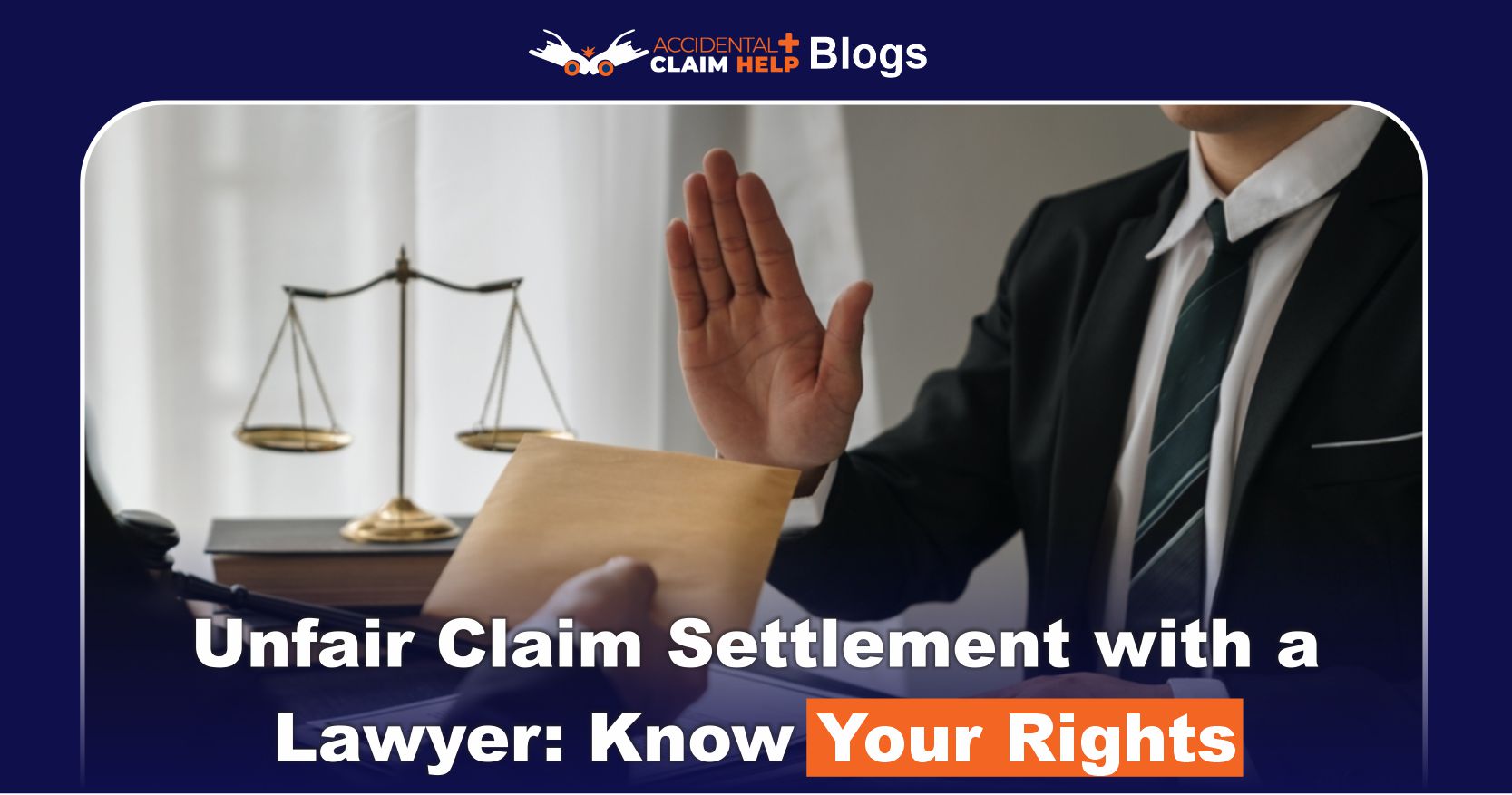Unfair Claim Settlement with a Lawyer: Know Your Rights
Facing an unfair claim settlement can be unsettling and stressful. Insurance companies are legally obligated to act in good faith, but some engage in unfair or bad-faith practices that leave policyholders underpaid or denied entirely. A knowledgeable lawyer helps you recognize red flags, assert your rights, and recover the full benefits you’re owed. This guide explores the law, common practices, and how legal expertise can turn things around.
What Constitutes Unfair Claims Settlement Practices?
Unfair practices occur when insurers manipulate, delay, or reject legitimate claims to protect their bottom line rather than fulfill policy obligations. Nevada law (NRS 686A.310) outlines extensive prohibited behaviors:
- Failing to acknowledge or act promptly on claims communications
- Delaying claims processing with redundant or unnecessary documentation requests
- Settling claims for less than a reasonable person would expect based on policy and advertising
- Refusing to pay after liability is clearly established
- Misrepresenting policy terms or altering applications without notice
When insurers repeatedly use these tactics, claimants may pursue remedies under Nevada’s Unfair Claims Settlement Practices Act.

Unfair Claims Settlement Practices: Examples
Clear examples include:
- Delays in Claims Processing: An insurer requiring the same documentation multiple times or delaying payment despite obvious liability.
- Lowball Offers: Offering a fraction of a legitimate claim value without justification.
- Misrepresentation: Altering a policy after purchase or misleading claimants about what coverage applies.
- Discouraging Legal Action: Advising claimants not to seek legal advice, effectively pressuring them into accepting substandard offers.
- Failure to Explain Denials: Not providing valid, written reasons for denying a claim, leaving policyholders confused and disadvantaged.
These examples help illustrate how bad-faith behavior damages trust and creates unnecessary hardship for claimants.
Unfair Claims Settlement Practices Act (Nevada)
Nevada’s statute—NRS 686A.310—sets standards for insurer conduct, many beyond the NAIC model:
- Insurers must process claims promptly and equitably, especially when liability is clearly established.
- They must communicate clearly, avoid misrepresentations, and offer timely claim resolution.
- Crucially, Nevada is one of the few states granting claimants a private right of action, enabling you to file suit for unfair practices and recover damages.
This law empowers policyholders to hold insurers accountable—especially when bad-faith actions result in financial loss or emotional distress.
An Example of Unfair Claims Settlement Practice (Quizlet)
Educational resources like Quizlet list real-world flashcard examples clarifying unfair practices:

- Examples include failing to promptly explain claim denials, or requiring redundant proof of loss submissions, which delay resolution.
These reinforce how even small procedural missteps can reflect bigger systemic issues in claims handling. Recognizing them is essential for effective dispute resolution.
Role of a Lawyer in Challenging Unfair Settlements
Legal Expertise & Investigation
Lawyers thoroughly review claims files, documents, and correspondence to spot unfair patterns—especially those listed under NRS 686A.310.
Evidence Compilation
An attorney helps gather evidence like internal emails, communication logs, industry standards, and third-party expert opinions to strengthen your position.
Negotiation & Pressure
Lawyers know how to present a compelling demand and apply pressure—often prompting settlement negotiations or reversal of improper denials.
Filing Formal Complaints
Nevada law permits you to sue insurers for statutory violations and pursue additional damages. A lawyer ensures your claim meets filing deadlines and proper procedures.
Bad-Faith Lawsuits
If negotiations fail, lawyers can elevate your case to court, seeking compensatory and punitive damages under the bad-faith doctrine. Nevada allows first-party bad-faith claims (i.e., your insurer’s failure to act in good faith).
Steps to Take if You Suspect an Unfair Settlement
- Document Everything: Track dates, communications, and actions taken by the insurer.
- Understand Your Policy: Know your rights; insurers must not misapply them.
- Submit Necessary Information: Provide clear, relevant evidence—but avoid responding to endless, redundant demands that stall the process.
- File Regulatory Complaints: Contact Nevada’s insurance department if the insurer fails to act within 30 days or fails to explain denial.
- Consult a Lawyer: Particularly if delays persist or the payout is unjustifiably low. Legal representation often changes insurer behavior quickly.
FAQs
1. What’s the most a lawyer can take from a settlement?
Lawyers usually work on a contingency fee basis in personal injury cases—this means they receive a percentage of the settlement as payment, without charging upfront fees.
- Generally, the range is 33% to 40% of the final settlement amount. For instance, if your case settles for $30,000, your lawyer could collect $10,000 to $12,000.
- Some attorneys use a sliding scales depending on the case stage:
- 25% if settled before a lawsuit is filed
- 33% if settled post-filing
- 40% if it goes to trialGoings
These structures help align attorney incentives with your case’s success and compensate for added work in litigation.
2. What is an example of an unfair claim?
An unfair claim often occurs when an insurer acts in bad faith to reduce or deny payout—even when the claim is valid. For example:
- An insurer delays or denies a claim without proper cause, even when liability is clear.
- An insurer issues a lowball settlement offer far beneath a reasonable claim value, with no explanation or justification.
- Real-world example: A UK case where a claimant sought over £2.5 million for a brain injury but was denied $750,000 because the court found she was dishonest about her injuries and symptoms.
3. What is the Unfair Claims Settlement Practices Act?
The Unfair Claims Settlement Practices Act (UCSPA) regulates how insurers must handle claims, prioritizing honesty, fairness, and transparency:
- The law mandates prompt, fair, and equitable claims processing, preventing insurers from minimizing or misrepresenting policy coverage.
- Policyholders have legal recourse if an insurer violates these duties—states can enforce penalties, and claimants may pursue lawsuits for bad faith.
4. What are four classifications of unfair claims settlement practices?
According to legal frameworks (like Nevada’s and NAIC recommendations), these unfair practices usually fall into four main categories:
| Practice Type | Description |
|---|---|
| Misrepresentation or Alteration | Insurer misstates or alters policy language affecting your claim. |
| Lack of Due Diligence | Claim examiner fails to investigate or process the file efficiently. |
| Timeliness Issues | Delays or ignores communications and fails to settle promptly. |
| Unreasonable Requirements | Demands excessive documentation or burdensome proof beyond what’s necessary. |
These classifications help examine insurance behavior and determine whether a claim is handled in good or bad faith.







